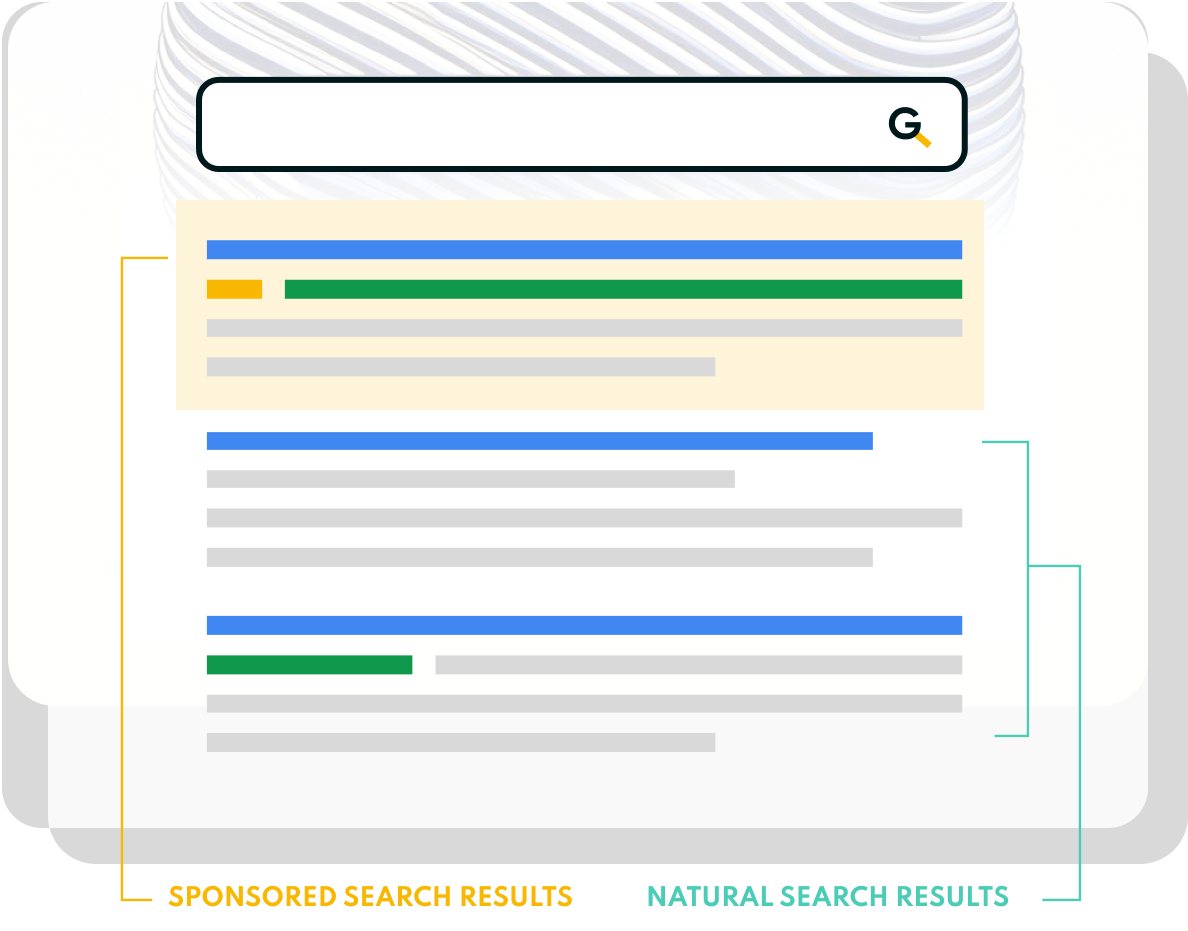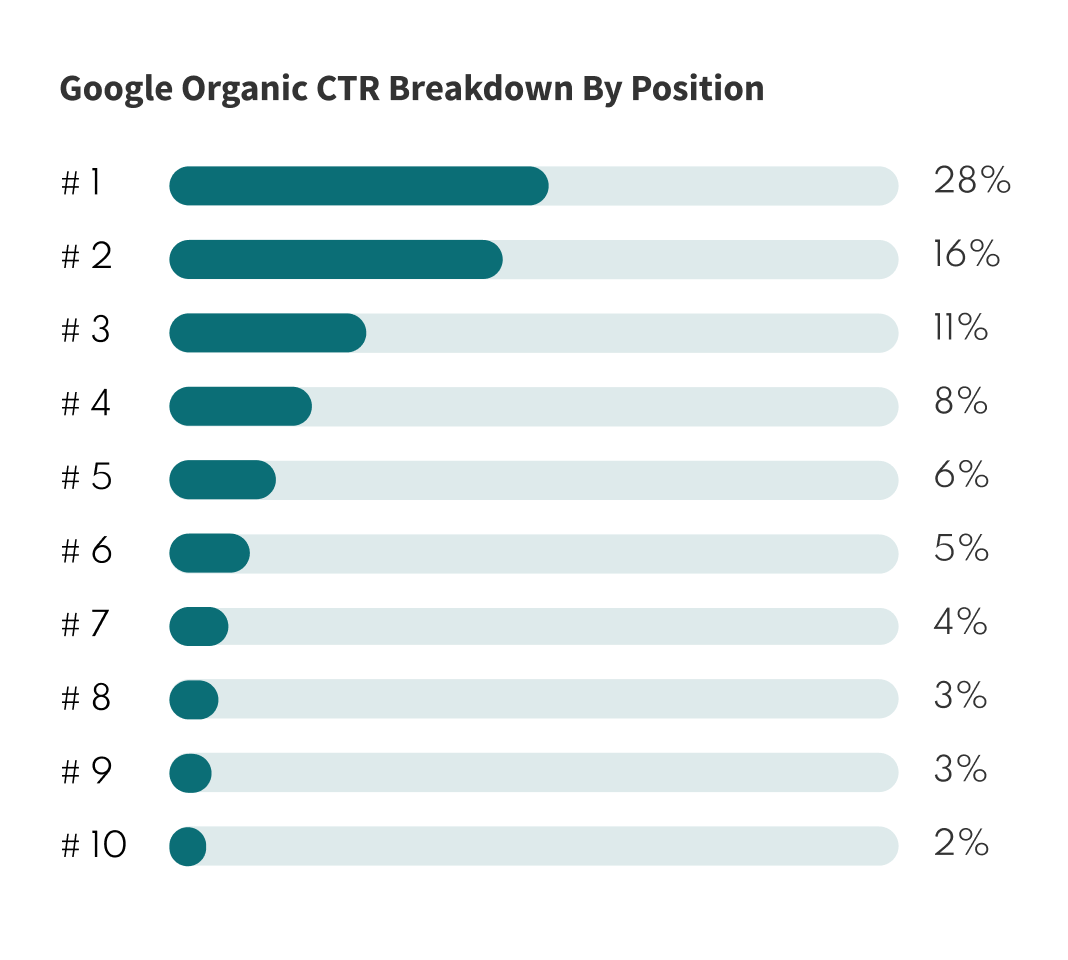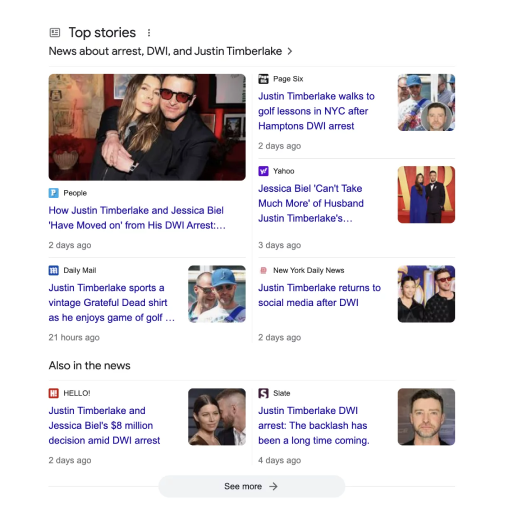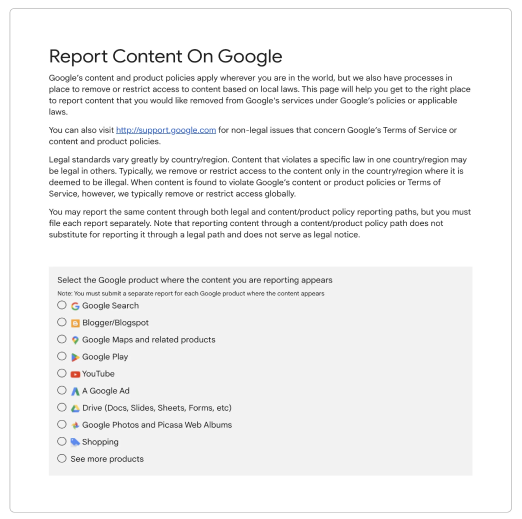I’m Ross Kernez—your trusted expert in Reputation Management for Investment Managers. With over fifteen years of experience, I help high-net-worth families and their advisors protect their name, navigate public scrutiny, and maintain a discreet yet credible online presence. My proactive strategies go beyond crisis control, focusing on long-term reputation stewardship that reflects your values, governance, and generational legacy.
Reputation Management For Investment Managers
I’m Ross Kernez, a Reputation Management Consultant with over 15 years of experience helping investment managers protect their online presence and establish a personal brand. I specialize in removing or suppressing negative coverage, correcting misleading information, and promoting narratives that reflect your expertise, integrity, and fiduciary responsibility. Whether you're dealing with regulatory mentions, client disputes, or media scrutiny, I’ll ensure your digital footprint aligns with the trust and performance your clients expect. In a high-stakes industry where perception shapes opportunity, your reputation must remain an asset—not a liability. Let’s make sure your search results reflect your leadership, not digital vulnerabilities.
Reputation Management For Investment Managers

as seen on
We can Help You to Establish Your Online Presence or Remove Negative Search Results
Speak With an Expert
Do you need online reputation management for investment managers??
| Option | Effectiveness | Cost |
| #1.Waiting For Negative Articles To Naturally Fall Off The First Page | Low | Free |
| #2.Submit a DMCA (Digital Millennium Copyright Act) Takedown Notice on Google | Low | Free |
| #3. Hire a Branding Expert ⭐️Ross Kernez ⭐️ to Clean Your Name or Brand | High | $$ |
| #4. Reaching Out To Journalists to Remove Content from Google Search | Low | Free |
| #5. Explore Legal Strategies to Remove Negative Content Online | Medium | $$$ |
| #6. Requesting an Update To a Negative Article Via Email Outreach | Low | Free |

What are Search Results?
Search results refer to the list created by search engines in response to a query. Search results can be broken down as follows:
Natural search results
(usually on the left-hand side of search engine’s results page) and;
Sponsored search results
(usually on the top and right-hand side of a search engine’s results page). Here you will see websites that have placed PAID ads within the search engine.


Who is Ross Kernez?

Why you should remove negative content online
Here’s some feedback from someone who has worked with Ross

How to suppress negative information about you in
Whether you’re battling FUD, fake reviews, or misinformation, I build a stronger online presence that reflects the integrity of your project. Let’s make sure your name—or your token—commands confidence and credibility from page one of Google.
Let's Dive Deeper on How online reputation management works for investment managers
First, we flood Google with fresh, high-authority coverage your audience can trust—think thought-leadership columns, verified interviews, strategic press releases, and marquee collaborations on publications Google already ranks well in Search and beyond, all optimised for the search terms tied to your name. Next, we harden every digital property you own: your website, bio pages, and social profiles are tightened technically, updated often, and cross-linked so they broadcast relevance and authority. If a news article gets the facts wrong, we lodge a tactful correction with the editor; if content crosses the line into defamation or privacy abuse, we issue formal takedown or de-index requests on solid legal grounds. Finally, we keep a steady drumbeat of positive press and social engagement flowing, so fresh wins rise to the top while outdated or hostile links sink deep into the results—well past page one, where they’re all but invisible.

Because Google elevates fresh, authoritative coverage, a single negative headline from a major outlet can vault to the top of your search results—and stay there—simply by virtue of the publisher’s credibility and the story’s recency. That means every new article or broadcast mention effectively renews the shelf-life of the unfavorable narrative, forcing it back onto Page 1 each time it’s updated, syndicated, or quoted. The only reliable countermeasure is to meet Google’s relevance signals with an equally timely stream of positive, high-authority content: an exclusive interview in a respected magazine, a feature on your philanthropic work, or a verified announcement on a well-trafficked platform. By continuously injecting fresh, newsworthy material that reflects your true accomplishments, you can dilute the impact of isolated negative pieces, shift the conversation, and gradually reclaim the real estate at the top of the results page—where first impressions are formed.

Why Google Ranks News Very High in Search?
#1. Waiting For Negative Articles To Naturally Fall Off The First Page
In a competitive investment climate, waiting for negative press to fade on its own is a risk no serious blockchain project should take. If a harmful article or forum thread continues to gain engagement, its visibility won’t fade—it stays on page one, undermining investor confidence and delaying funding.
Our reputation management experts proactively protect your brand. We publish investor-friendly, trust-enhancing content in Arabic and English, fine-tune your digital footprint, and take swift action when your name surfaces in the wrong context. With constant monitoring and precision SEO, we ensure damaging narratives are buried, and your blockchain vision remains the focus.

#2. Submit a DMCA Takedown Notice on Google
When a regional news outlet or global blog republishes your proprietary content without permission, taking swift action is critical to protect your brand. Start by collecting the infringing URLs and capturing dated screenshots or archived versions that clearly show your ownership. Then, visit Google’s copyright-removal portal (support.google.com/legal/troubleshooter/1114905) and select the appropriate product—Search, YouTube, Images, and more. Fill out the form with your contact information, a detailed description of your original work, the infringing links, and a sworn statement asserting your rights. Google will evaluate your claim and may request additional documentation—so be prepared to respond promptly. Once approved, the offending URLs will be deli

#3. Hire an SEO Expert
When you partner with crypto-focused reputation strategist Ross Kernez, you gain an expert who knows how to influence search results and control the narrative in a volatile digital landscape. Ross applies a multi-layered strategy—bilingual news placements, purpose-built microsites, high-impact press releases, and synchronized social media efforts—designed to elevate your credibility while suppressing FUD, outdated articles, and hostile forum posts. Every action is custom-built: Ross audits the keywords, platforms, and publishers that shape perception in the crypto space, then powers a content engine that brings your best press forward and moves harmful links out of sight.
Outsourcing this mission isn’t just smart—it’s critical. In the 24/7 world of crypto, your name or project can trend for the wrong reasons in seconds. Reputation management here demands constant vigilance, deep SEO expertise, and messaging that aligns with both mainstream media and blockchain-native communities. With Ross managing your onli

#4. Reaching Out To Journalists
Reaching out to a journalist—or any media outlet—to address unfavorable crypto-related coverage requires tact, professionalism, and a clear, evidence-backed approach. Start by identifying the reporter and publication, then review their correction or update policies to ensure your request aligns with their editorial standards. In your personalized message (avoid templates), acknowledge the journalist’s role in fair reporting and clearly explain—supported by concise, verifiable proof—why the article is outdated, misleading, or factually incorrect. Include documentation or recent developments that reflect the full, current picture. If the facts are technically accurate but the context has shifted, consider suggesting an update that highlights recent achievements or progress. Offering an exclusive quote, interview, or dataset can turn your request into a value-added opportunity for the reporter.
Throughout the exchange, maintain a respectful and cooperative tone. Journalists are under no obligation to revise or remove content, and collaborative engagement is often more productive than confrontation. If the outreach yields no result, incorporate it into a wider crypto reputation strategy—whether that involves legal guidanc

#5. Explore Legal Avenues
Taking a publisher to court under defamation or cyber-crime laws may seem like a straightforward solution, but legal action rarely results in the clean slate most crypto founders and brands envision. Lawsuits can be expensive, drawn-out, and mentally draining—often lasting months or years with no guarantee that the harmful content will be taken down. Worse, filing a case can unintentionally reignite attention, as media outlets report on the lawsuit itself, amplifying the very content you aimed to suppress through what's known as the Streisand effect. The legal bar is high: you must prove that the statements are false, damaging, and made in bad faith—an uphill battle, especially when dealing with opinion pieces or vague allegations. Even a courtroom win can leave the article online, now accompanied by headlines about the legal dispute, and may damage future relationships with reporters who view the move as overly aggressive.
A more strategic approach for crypto companies and leaders is proactive online reputation management. By addressing inaccuracies directly with editors, publishing factual and trust-building narratives in multiple languages, and populating search results with authoritative, positive content, you can reshape public perception—quietly and effectively. This forward-thinking strategy not only protects your digital footprint today but also preserves the goodwill and press relationships

#6. Requesting an Update To An Article To Remove Negative Results
When requesting an update from a journalist covering your crypto project, lead with professionalism, transparency, and solid evidence—not confrontation. Begin your outreach by acknowledging the reporter’s role and commitment to accuracy, then present clear, verifiable proof that the article is outdated, misleading, or incomplete. Strengthen your case with updated data, recent milestones, or new context the original piece may have missed—ideally available in multiple languages for added clarity and accessibility.
Position your request as a mutual effort to maintain factual accuracy, not an attempt to suppress coverage. This collaborative tone encourages goodwill and makes it easier for the journalist to revisit and refine the story. The result is a more balanced piece that protects your reputation, enhances the outlet’s credibility, and helps shift negative search results further down the page—supporting a more favorable digital presence in the highly scrutinized crypto space.

Who We Work With
We provide search suppression services for both individuals and corporations .
Below are some of the types of clients we've been able to work with over the years:
Individuals
1. Celebrities
2. Musicians
3. Politicians
4. Authors
5. Non-public individuals
Business
1. Fortunate 500 companies
2. CEOs & executives
3. Business crises
Advanced Tracking Technology
Our tailored suppression process is supported by advanced tracking technology, specifically designed for our search suppression services. This custom-built solution enables seamless monitoring of your campaign's performance and progress.
Key features of our technology include:
Analyzing sentiment associated with search results
Providing a comprehensive sentiment score
Tracking a wide range of brand-related keywords
Monitoring search results across various locations
With our proven suppression strategies, we effectively pushed negative content off the first page of Google search results.
We can help you push down negative results and secure positive news coverage in 146 countries and 51 languages
All countries
Europe
North America
Central America
South America
Asia-Pacific
Middle East
Africa
Central Asia
Kazakhstan
Mexico
France
U.S.
Serbia
Bangladesh
Bosnia and Herzegovina
Venezuela
Pakistan
U.A.E.
Switzerland
Hungary
Turkey
Romania
India
Spain
Kyrgyzstan
Kenya
Georgia
Vietnam
Slovakia
Peru
Chile
Belgium
Indonesia
Argentina
Germany
Poland
China
Estonia
Azerbaijan
Norway
Lithuania
Nigeria
Austria
Denmark
Portugal
Canada
Italy
U.K.
Malaysia
Finland
Uzbekistan
South Africa
Croatia
Bulgaria
Czech Republic
Australia
Netherlands
Brazil
Ukraine
Moldova
Singapore
Egypt
Philippines
Latvia
Japan
Sweden
Colombia
France
Serbia
Bosnia and Herzegovina
Switzerland
Hungary
Romania
Spain
Georgia
Slovakia
Belgium
Germany
Poland
Estonia
Norway
Lithuania
Austria
Denmark
Portugal
Italy
U.K.
Finland
Croatia
Bulgaria
Czech Republic
Netherlands
Ukraine
Moldova
Latvia
Sweden
Mexico
U.S.
Canada
Venezuela
Peru
Chile
Argentina
Brazil
Colombia
Bangladesh
India
Vietnam
Indonesia
China
Malaysia
Australia
Singapore
Philippines
Japan
U.A.E.
Turkey
Azerbaijan
Egypt
Kenya
Nigeria
South Africa
Pakistan
Kyrgyzstan
Uzbekistan
FAQs
How to Suppress Unwanted News?
What is reputation management for investment managers?
Reputation management for investment managers involves monitoring, protecting, and enhancing their personal and professional image across online and offline channels. In a field where trust is paramount, a single negative article, regulatory mention, or client complaint can jeopardize future business. Reputation strategies include suppressing negative content, promoting positive news, and building a strong digital presence through media placements and thought leadership. Investment managers also benefit from ongoing monitoring to quickly address emerging risks. A well-managed reputation supports credibility, client retention, and asset growth.
Why is reputation important for investment managers?
Reputation directly impacts an investment manager’s ability to attract and retain clients, secure partnerships, and command trust in financial markets. Investors often perform online research before entrusting their money, and negative search results or outdated media can raise red flags. Regulatory mentions, even without wrongdoing, can also erode confidence. A strong reputation reassures clients of professionalism, integrity, and transparency. In an industry built on relationships and credibility, reputation is one of the most valuable intangible assets.
What are the risks of not managing your online reputation?
Ignoring online reputation risks allows negative narratives to dominate search results, which can deter prospective clients and partners. Unaddressed complaints, negative reviews, or misleading content may remain visible for years, impacting business performance. Without active reputation monitoring, issues can escalate unnoticed, resulting in missed opportunities and revenue loss. Competitors may also exploit visible weaknesses to undermine your position in the market. Proactive reputation management safeguards your brand from long-term reputational damage.
How can negative search results affect an investment manager’s business?
Negative search results can instantly cast doubt on an investment manager’s credibility, regardless of their accuracy or context. Prospective clients may view the information as a red flag, leading them to choose another firm. Even existing clients may grow uneasy, questioning your transparency and due diligence standards. Over time, this can impact referrals, client retention, and overall AUM (assets under management). Suppressing or addressing harmful content is essential for maintaining a clean, trustworthy digital footprint.
Can investment managers remove negative articles or reviews online?
While complete removal is not always possible, reputation experts use strategies to suppress or de-index negative content from appearing prominently in search results. Legal recourse may be available if the content is defamatory, outdated, or violates privacy laws. Additionally, strategic content publishing, PR campaigns, and SEO techniques can shift the focus to positive, authoritative content. In cases of misinformation, direct outreach to publishers may yield corrections or updates. Each situation requires a tailored approach depending on the source and severity of the content.
How does reputation management work in the finance industry?
Reputation management in finance focuses on aligning your online presence with the values of trust, performance, and compliance. It starts with a thorough audit of your digital footprint, followed by targeted strategies like content creation, media outreach, SEO, and crisis response. Professionals monitor industry forums, news coverage, review platforms, and search rankings to anticipate and respond to threats. The goal is to highlight your strengths while addressing vulnerabilities before they become liabilities. This approach ensures that your reputation reflects the integrity and expertise you bring to the table.
Is reputation management only necessary during a crisis?
No, the best reputation strategies are proactive, not reactive. Waiting until a crisis strikes often limits your options and increases damage. Proactive reputation management helps you build a reservoir of goodwill and visibility, which can insulate your brand when challenges arise. Ongoing efforts ensure you’re not only protected from negative press but also positioned as a credible, respected authority in your field. It’s an ongoing investment in your personal and professional brand health.
How do you monitor an investment manager’s reputation?
Monitoring involves tracking mentions across news outlets, financial blogs, social media platforms, regulatory databases, and Google search results. Reputation consultants use advanced tools to flag changes in sentiment, identify risks, and spot negative content early. Monitoring also includes keeping tabs on competitor positioning and industry chatter that could impact perception. This real-time visibility allows you to respond quickly and strategically. Continuous monitoring is the foundation of a strong reputation defense system.
What types of content help improve an investment manager’s online image?
Thought leadership articles, media interviews, podcast appearances, and client success stories all contribute to a positive online narrative. Content that highlights your firm’s performance, investment philosophy, or philanthropic efforts also builds credibility. High-ranking digital assets—like a strong LinkedIn profile, featured press, and a well-optimized website—can push down negative results. Visual content such as videos and infographics further reinforce professionalism and transparency. Strategic publishing ensures that when people search your name, they see value, trust, and authority.
Can SEO help with reputation management for investment managers?
Absolutely. Search engine optimization (SEO) is a core tactic in reputation management. By optimizing positive content with the right keywords, structure, and backlinks, you can improve its visibility in search results. This helps push down negative or irrelevant content and replaces it with more favorable assets. SEO also improves discoverability for media features, case studies, and personal profiles. In essence, it ensures that your best content outranks damaging or outdated pages.
What role does Google search play in an investment manager’s reputation?
Google is often the first stop for clients, partners, and journalists researching an investment manager. What appears on the first page significantly shapes perceptions—whether it’s glowing reviews, balanced articles, or negative headlines. A single outdated article can create lasting doubt, even if your record is otherwise clean. Reputation management ensures that your Google results reflect your current success, not past controversies or unfair criticism. Controlling the narrative in search engines is critical to long-term brand trust.
Can social media hurt an investment manager’s reputation?
Yes, even minor missteps or misinterpretations on social media can escalate into reputational issues. Clients may take comments out of context or interpret them as breaches of professionalism or compliance. Additionally, fake accounts or malicious actors can spread misinformation or impersonate professionals. Regular audits, verified profiles, and clear social media policies help mitigate these risks. Properly managed, however, social media can also enhance reputation through thought leadership and transparency.
How quickly can reputation be repaired?
Rebuilding a damaged reputation takes time, strategy, and consistent effort. Depending on the severity of the issue and how entrenched negative content is in search results, it may take weeks to several months. Quick wins may include removing false content, updating bios, or publishing positive press, but long-term change requires building a robust portfolio of digital assets. The key is to act fast and maintain momentum until search results and public perception shift in your favor. Patience and persistence are critical.
Can past regulatory actions be removed from the internet?
In most cases, official regulatory actions remain publicly accessible on government or industry websites. However, their prominence in search results can often be reduced through reputation management strategies. You can also contextualize the action with accurate, reputationally neutral content that explains the outcome or lessons learned. The goal isn’t always erasure—it’s ensuring a fair and balanced picture. A reputation expert can help minimize long-term impact through strategic content and positioning.
How does reputation impact investor confidence?
Investors rely heavily on perception and trust before allocating capital. If an investment manager appears untrustworthy, controversial, or unstable, it raises red flags—even if performance metrics are strong. Reputation also affects your ability to close deals, retain clients, and raise additional funds. A clean, well-managed image inspires confidence and positions you as a reliable steward of capital. In a competitive industry, trust often makes the difference between opportunity and rejection.
Do reputation management services provide legal support?
Many reputation management providers work alongside legal professionals to address defamation, impersonation, or privacy violations. While they don’t offer legal advice themselves, they may refer you to specialized attorneys when necessary. Legal takedowns can be pursued in parallel with digital strategies to suppress content. A combined legal and digital approach is often the most effective when reputational risk involves false or malicious information. Legal tools and reputation management often complement each other.
What makes financial reputation management different from other industries?
The finance industry is subject to stricter regulations, higher stakes, and more scrutiny than many other sectors. Compliance, transparency, and fiduciary duty are essential to building trust with clients and regulators. Reputation management for investment managers must take these factors into account while avoiding tactics that could raise ethical or legal concerns. Every strategy must be precise, compliant, and aligned with your firm’s values. The reputational cost of a misstep in finance is far greater than in many other industries.
Can reputation management help attract new clients?
Yes, a positive online reputation enhances your brand image and increases the likelihood that prospective clients will engage with you. When your name is associated with expertise, integrity, and success, it builds the trust needed to convert interest into business. Thought leadership content and media visibility also demonstrate authority, drawing in clients who value transparency and strategic insight. Reputation management helps turn curiosity into confidence. A strong reputation is a powerful business development tool.
Should small investment firms invest in reputation management?
Absolutely. Smaller firms often rely even more heavily on personal relationships and trust, which makes reputation all the more critical. A single bad review or outdated regulatory mention can derail momentum or deter referrals. Proactively managing your image ensures you’re not caught off guard as you scale. Reputation management levels the playing field by helping small firms compete with more established brands. It’s an investment in long-term growth and resilience.
Is reputation management ethical?
When done transparently and responsibly, reputation management is not only ethical—it’s essential. The goal isn’t to hide the truth but to present a fair, balanced, and current picture of your professional identity. Ethical reputation management avoids black-hat tactics and focuses on accuracy, compliance, and authenticity. It’s about correcting misinformation, amplifying real achievements, and protecting against unfair attacks. Reputation strategy should always align with industry standards and legal best practices.
Can you manage a reputation anonymously?
While some actions—like publishing content or claiming profiles—require your name, much of the work can be done discreetly. Reputation experts often operate behind the scenes, managing search results, flagging violations, or liaising with platforms on your behalf. This allows you to focus on your business while your public image is handled professionally. The goal is to make improvements without drawing unnecessary attention to past issues. Confidentiality is a cornerstone of high-level reputation work.
What happens if someone posts false information about an investment manager?
False or defamatory content can often be challenged through legal notices or takedown requests, especially if it violates platform terms or privacy laws. Reputation specialists assess the content’s origin, visibility, and impact, then create a suppression strategy or legal escalation plan. At the same time, positive content is published to dilute the impact of the false claims. Acting quickly prevents further spread and reinforces your version of the truth. Protecting your digital reputation from lies is both possible and necessary.
Can client complaints affect an investment manager’s reputation online?
Yes, even a few public client complaints can cause reputational harm, especially if they appear prominently in search results. These reviews can erode trust and give the impression of a pattern, even if the issues were isolated. Reputation management helps respond to, mitigate, or de-emphasize such content through reviews strategy and content optimization. It’s also important to address client concerns directly and professionally. Prevention, resolution, and digital suppression all play a role.
How do reputation firms handle crisis communication?
In a crisis, reputation firms act quickly to assess the situation, control the narrative, and deploy high-authority content that provides context or reassurance. They may coordinate with legal, PR, and internal teams to ensure consistent messaging across platforms. The goal is to restore confidence, reduce visibility of harmful content, and show that the issue is being addressed with transparency and accountability. Timely, strategic action prevents further damage and lays the groundwork for recovery. Effective crisis response is a key pillar of any robust reputation plan.
What should investment managers look for in a reputation consultant?
Look for someone with financial industry experience, a proven track record, and a clear understanding of compliance-sensitive environments. The consultant should offer a blend of SEO, content, media, and crisis management expertise. Transparency, discretion, and ethical practices are non-negotiable. Ask about past successes, timelines, and reporting practices. A qualified consultant will tailor their approach to your unique needs and operate as an extension of your brand team.
Can outdated content be removed from Google?
Sometimes, yes—especially if the content is no longer relevant or violates platform policies. In some cases, outdated pages can be deindexed or replaced with fresher, optimized content. Google’s content removal tools and right-to-be-forgotten policies (in some jurisdictions) may also apply. A reputation expert can evaluate each link and recommend the best course of action. The goal is to ensure that your online presence reflects your current standing, not outdated events.
Is there a long-term strategy for maintaining reputation?
Yes, effective reputation management includes both short-term fixes and long-term reputation building. This includes ongoing publishing, monitoring, SEO maintenance, and proactive risk mitigation. A long-term plan ensures you stay ahead of potential threats while continuing to grow a positive digital footprint. It becomes part of your overall brand strategy, not just a reaction to negative events. Reputation is a living asset that needs care and attention over time.
How much does reputation management cost for investment managers?
Costs vary based on the scope, urgency, and complexity of the issues involved. Basic monitoring and content strategies may be affordable, while crisis response, legal coordination, or large-scale suppression efforts are more intensive. Most professionals offer custom plans that scale with your needs. Think of it as an investment in client trust, brand equity, and long-term business viability. The cost of inaction is often far greater than the cost of professional reputation support.
